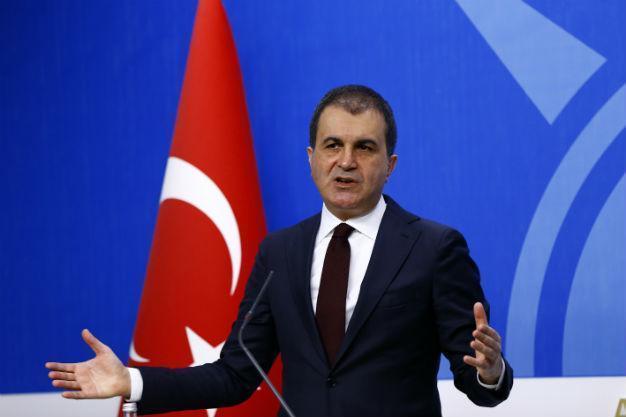Independence of Iraqi Kurdistan would further complicate Sykes-Picot instability: Turkey’s AKP
ANKARA

AA photo
Turkey’s ruling Justice and Development Party (AKP) has suggested that the prospective independence of Iraq’s Kurdistan Regional Government (KRG) would “further complicate the picture” in a region destabilized by the “artificial borders of the Sykes-Picot agreement” of 1916.AKP spokesperson Ömer Çelik said the Sykes-Picot agreement, the centennial of which will be marked in May, drew “artificial borders” that have had a destabilizing impact on the entire Middle East.
The Sykes-Picot agreement between Britain and France of 1916 did not actually draw the boundaries of the region, but it did seek to carve out spheres of influence from the ruins of the crumbling Ottoman Empire during the First World War.
“In my opinion, debating the issue in terms of allowing or not allowing new states to be built would only lead to the further reinforcement of the artificial agenda that Sykes-Picot created,” Çelik told reporters on Feb. 4, commenting on Feb. 3 comments by Iraqi Kurdish leader Massud Barzani who said the “time has come” for the Kurds of northern Iraq to hold a referendum on statehood.
“What we need to consider in this region is how all ethnic groups and all sectarian groups can create new zones of prosperity that go beyond borders, while also respecting existing borders, new freedoms, new political approaches and new cultural integrations. So we believe that [holding a referendum] would not be very appropriate,” Çelik added.
Barzani, who has made similar calls in the past, did not specify when any vote would take place.
“The time has come and the conditions are now suitable for the people to make a decision through a referendum on their future,” Barzani said in a statement released on Feb. 3.
“This referendum would not necessarily lead to [an] immediate declaration of statehood, but rather to learn the will and opinion of the people of Kurdistan about their future,” said Barzani, who remains in power in the Iraqi Kurdistan Regional Government (KRG) despite the expiration of his term as president.
In recent years Iraq’s Kurds have sought to maximize their autonomy, building their own pipeline to Turkey and exporting oil independently, as relations with the federal government in Baghdad frayed over power and revenue sharing.
However, the global slump in oil prices has compounded existing economic problems, bringing the KRG to the point of insolvency.
Regional powers have historically opposed Kurdish aspirations for independence, especially neighboring states with large Kurdish minorities of their own. The United States also says it wants the Kurds to remain part of Iraq.
















